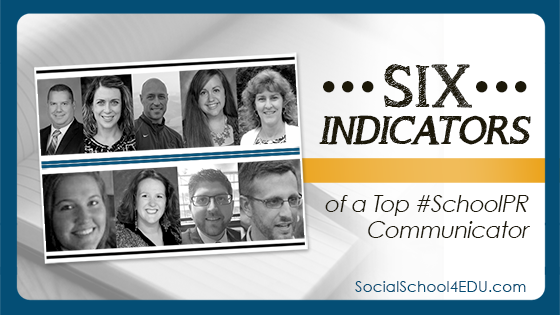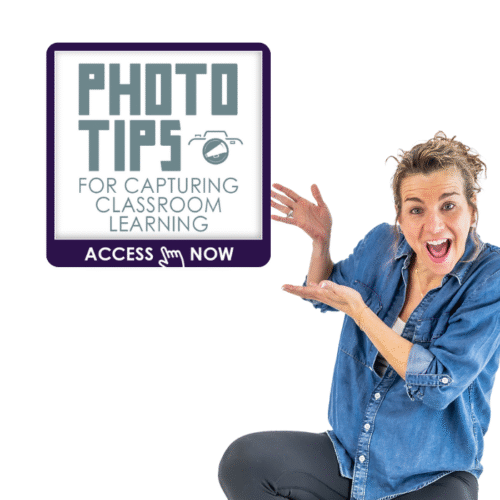School communicators come in many forms and titles.
Some of you are full-time communication directors. Others are administrative assistants. Some are superintendents. A number of you are teachers trying to fit in communications on top of running a classroom.
But you all have one thing in common.
You’re AWESOME!
You see, over the past four years of running #SocialSchool4EDU, I’ve had the privilege to get to know you.
You give so much to your schools while working behind the scenes to make your school shine.
Little credit is given to you. People don’t really understand what you “do.” And the only time your name may really come up is when something goes wrong…
Well, I’ve been watching closely. I see the incredible amount of heart you put into your role. And today, I want to share the six indicators of a great #SchoolPR communicator.
You can listen to the live video, or you can grab the highlights below.
- You know that your job is all about the kids
Making decisions in this role is something you need to be doing CONSTANTLY. It can be challenging, but keeping your decisions centered on how it impacts kids will make it much easier. Two amazing people that I talk about in the video include Justin Elbert and Joe Sanfelippo. - You build a team of storytellers
You cannot do it alone. There are too many amazing things happening in your school for people to be waiting for you to show up to snap the photo! You need to build a team of storytellers and work on a system so that everyone can share what’s happening. Greg Turchetta has done an amazing job with this at his school in Florida. You can even learn more from him with this interview. - You have a seat at the leadership table
School communicators need to be involved in the decisions being made on the front end to help avoid issues on the back end! If you have a designated position in communications, then you need to be involved closely with the leadership team. In my video, I reference Melissa McConnell, who gave a master class webinar on the #SchoolPR role. That recorded webinar can be accessed by members only. If you are interested in joining us, learn more here. - You utilize your background
Many of you didn’t set out to be school communicators when you got started. But you use your knowledge, experiences, and skills to communicate on behalf of the school. Two of my favorite roles that end up getting into communications positions are journalists and teachers. In my video, I share more about Joelle Doye and Brian Nicol. Personally, I play off of my experience as a mom. I have six kids, and staying connected to things happening at their school can be challenging. I think about serving busy moms like me! - You understand your community
Knowing how your community wants to get information is critical to your role! I’ve learned so much from author and school communication queen Kristin Magette, APR. She literally wrote the book on embracing social media for schools (check out her second edition now), and still uses Facebook as the only official district channel for social media. Sometimes it can be overwhelming with all the options out there – and if it’s overwhelming for you – think about your community! - You surround yourself with great people
In order to be a school communicator, you have to be willing to learn, change and grow. Two people that I think are amazing examples of this are Tracy Jentz and Peg Mannion, APR. Get involved in Twitter chats like #K12PRChat. Become an active member of NSPRA.



